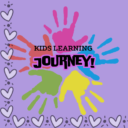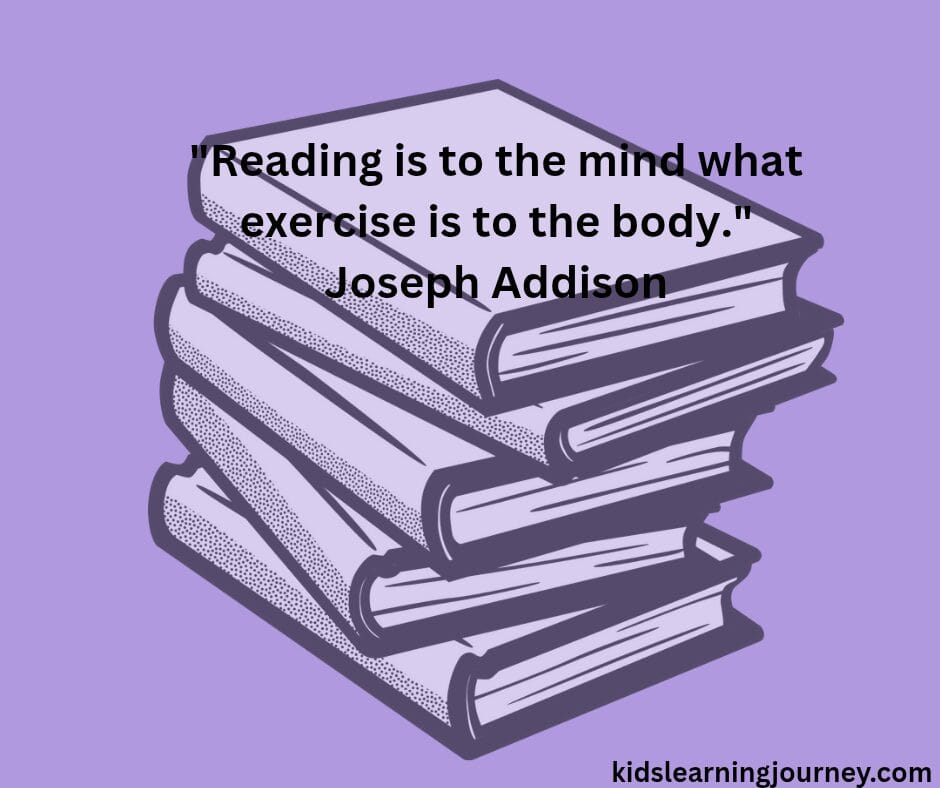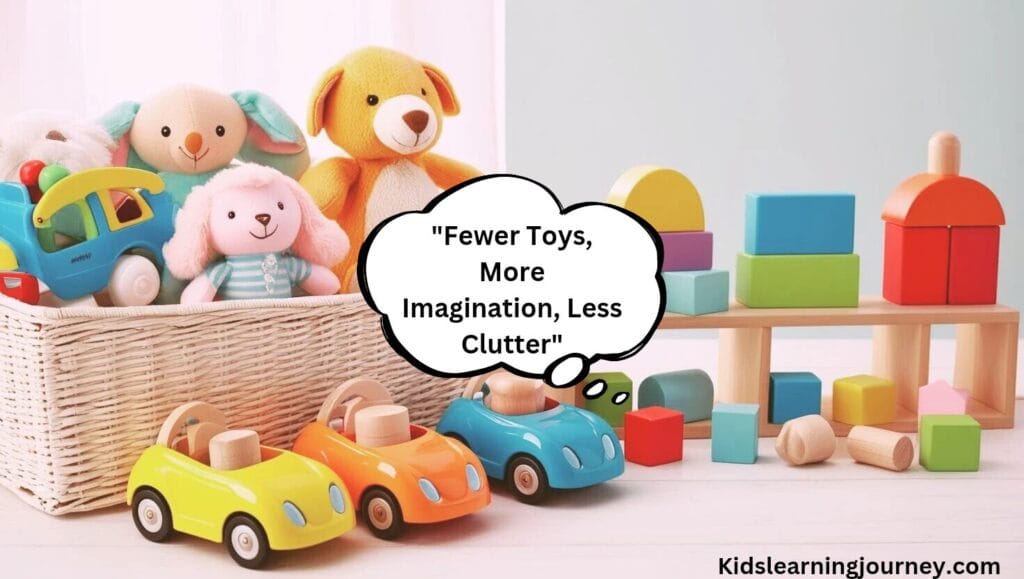According to a research, "Children with a larger vocabulary are more confident, and tend to do better academically in all subjects."
The word “vocabulary” originates from the Latin term “vocabulum,” meaning “a word” or “name.” Vocabulary, also known as a lexicon, refers to a collection of words. It can encompass all the words in a language or simply the words a person knows. Vocabulary is essential for language and communication, as it enables individuals to convey their thoughts, ideas, feelings, and information effectively. (Wikipedia)
Importance of Vocabulary for Children
A strong vocabulary is essential for effective communication and can help your child express their thoughts and ideas more clearly.
It can also make your child a more persuasive speaker or writer and increase their confidence in social and professional situations.
Building a strong vocabulary from an early age is like opening a doorway to a lifetime of learning and imagination.
As children grow, a rich knowledge of words fuels their reading comprehension, empowers their academic achievements, and unlocks new ways to express themselves
In this article, you will find effective ways to build vocabulary that can enhance your child’s learning journey.
1. Read, Read, Read! -Growing Little Bookworms
Research Says: Early Vocabulary Knowledge is Key to Lifelong Reading Success.
If you’re a book lover you’re already paving the way for your child to discover the magic of reading!
Start small—read in front of them, even if it’s a magazine or novel, to show that reading can be a daily delight.
For the littlest ones, picture books are perfect, and bedtime stories create special moments that turn reading into a cherished habit.
As they grow, a trip to the library or a cozy corner in the bookshop can be an adventure!
Explore shelves together, talk about the stories, and let their curiosity guide them.
Soon enough, they’ll be hooked on the written word, and the world of books will be theirs to explore.
2. Smart Screen Time: Learning Through Movies and Videos
While screen time has its downsides, it can be a wonderful learning tool when used wisely.
YouTube and social media platforms are now flooded with educational videos, animated stories, and fun lessons just a click away!
You can set aside a specific time each week for watching educational videos.
Watching movies or shows together not only entertains but also helps kids pick up new words and learn pronunciation naturally.
Try planning a movie night with a classic or a fun family film, and then chat about the story and the words you both enjoyed.
This way, screen time becomes a smart time for expanding vocabulary and bonding over learning.
3. Word Wonders: Building a Strong Vocabulary Through Journaling
Keeping a journal is more than just writing down thoughts; it’s an opportunity for personal growth and language development.
Encourage your child to keep a “Word Wonders” journal where they jot down new words, record ideas, and reflect on what they’ve learned.
Each day, they can write a sentence or story using their new vocabulary.
Over time, this practice builds confidence in using complex words in their writing and daily conversations.
Plus, they can look back and see how much they’ve grown in their language skills, adding motivation to keep learning!
4. Boost Your Child’s Vocabulary with Fun Word Games
Want to make learning fun?
Try vocabulary games like Hangman, Word Search, and Scrabble!
These childhood games help kids expand their vocabulary while having a blast.
With a focus on play-based learning, word games are a fantastic way to support your child’s language skills in an enjoyable, engaging way.
5. Smart Screen Time: Innovative Apps and Games to Build Vocabulary
The internet offers valuable resources like e-books, learning apps, and videos.
There are tons of innovative apps available for vocabulary learning—perfect if you’re a busy parent or want to make the most of screen time this is the great way for your kids having fun while learning.
Vocabulary-building apps are designed to make learning easy, fun and engaging.
6. How Creative Writing Expands Kids’ Vocabulary
Creative writing opens doors for kids to express themselves while building a strong vocabulary. The National Literacy Trust highlights that creative writing can boost wellbeing, making kids three times more likely to feel relaxed and happy when they write.
Through story writing, children dive into a world of imagination that stretches their vocabulary beyond the everyday.
As they create characters and plot twists, they naturally discover new words and phrases, boosting their ability to communicate more effectively.
This journey into storytelling isn’t just about putting words on paper—it’s a pathway where kids explore language, enhance critical thinking, and gain the confidence to articulate ideas with clarity and creativity.
7. Boost Vocabulary and Focus:Boost Your Child’s Vocabulary with a Dictionary Adventure!
Keeping a dictionary for finding word meanings, synonyms, and antonyms is a traditional yet effective way to improve vocabulary.
It can boost your child’s focus and concentration and keep them occupied for a long time if they’re always looking for screen-free activities.
It’s a good way to keep them busy for a long time.
Give your child a list of words and ask them to find the meanings, synonyms, and antonyms.
Use these words to create sentences, incorporate them into creative writing, and include them in daily conversation.
8.Flashcards for Toddlers: A Fun Way to Grow Their Vocabulary!
One of the simplest and most effective ways to expand your toddler’s vocabulary is through flashcards.
Bright, colorful flashcards capture their attention and spark curiosity, making learning feel like play.
For children with lots of energy, flashcards can help them focus for a few minutes, allowing you to create a calm, engaging environment.
It’s a fantastic way to build vocabulary while keeping them entertained.
9.Library Adventures: Turning Reading Into a Family Habit
Your child can become an avid reader if you help them see reading as a fun habit rather than as homework or a task they must complete.
One great way to encourage this is by regularly planning trips to the library.
Allow your child to borrow books that interest them, whether they are fiction, non-fiction, or picture books.
This helps them feel involved in the process and makes reading more exciting.
Additionally, borrow books for yourself. When your child sees you enjoying reading, they’re more likely to follow your example and develop an interest in books too. Children often mimic their parents’ behaviors, so your own enthusiasm for reading can inspire them to view it as a rewarding and enjoyable activity.
Conclusion:
A rich vocabulary enhances kids’ learning, boosts confidence, and improves communication skills.
Reading any book, magazine, or article helps kids discover new words, making it essential for boosting vocabulary and knowledge.
For a more playful learning journey, word games, keeping a vocabulary journal, watching movies together, or using apps can make learning words exciting.
Through regular practice, your child’s vocabulary will blossom


